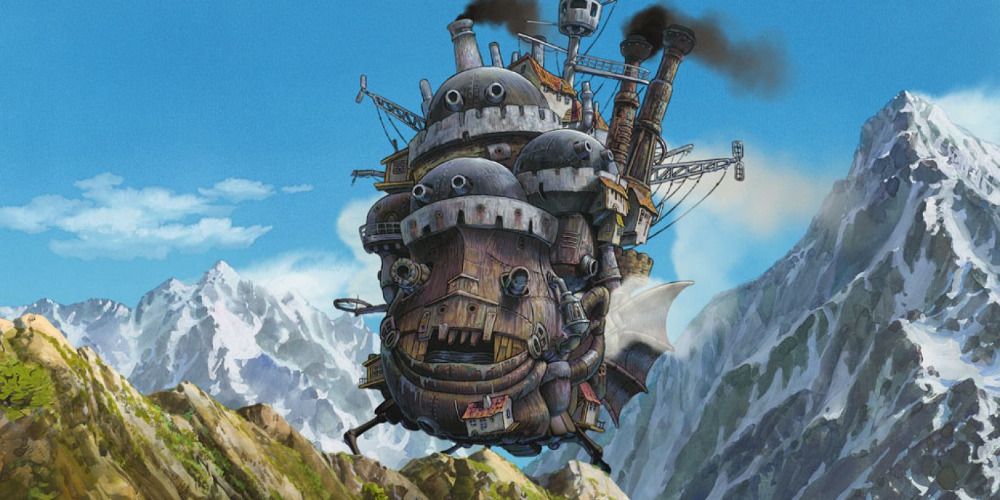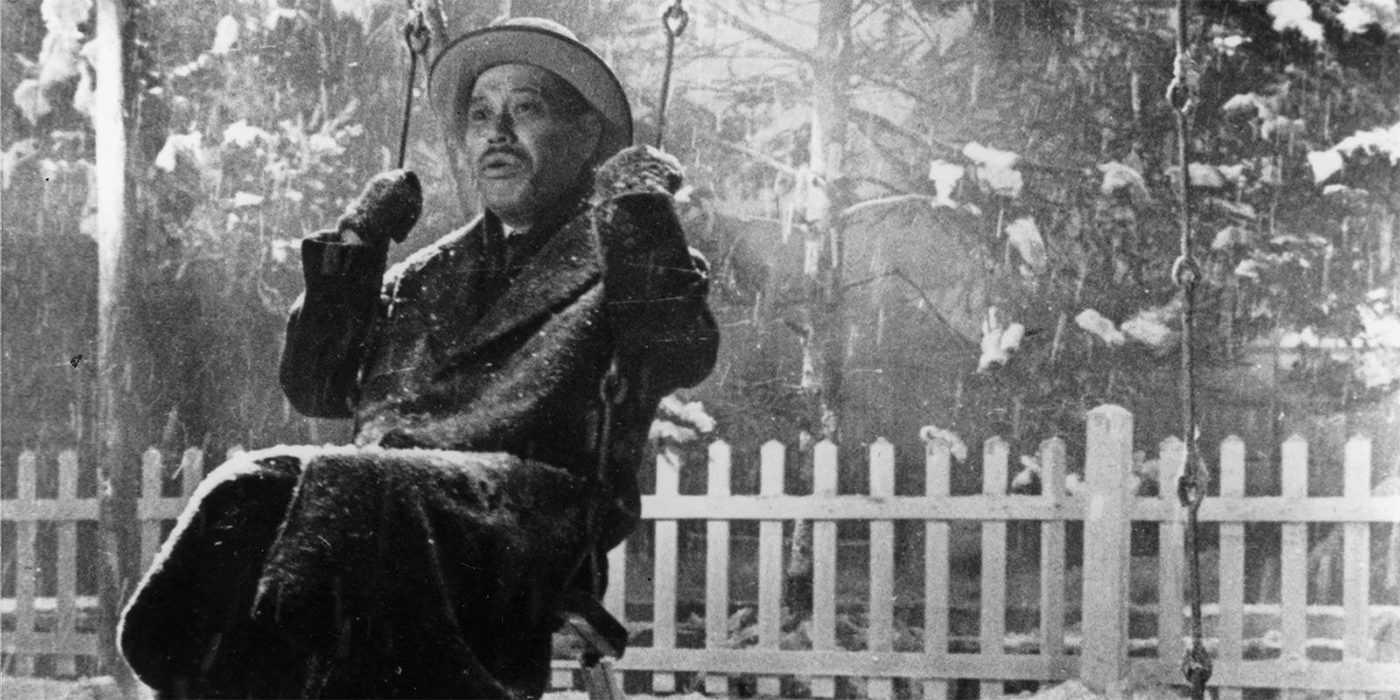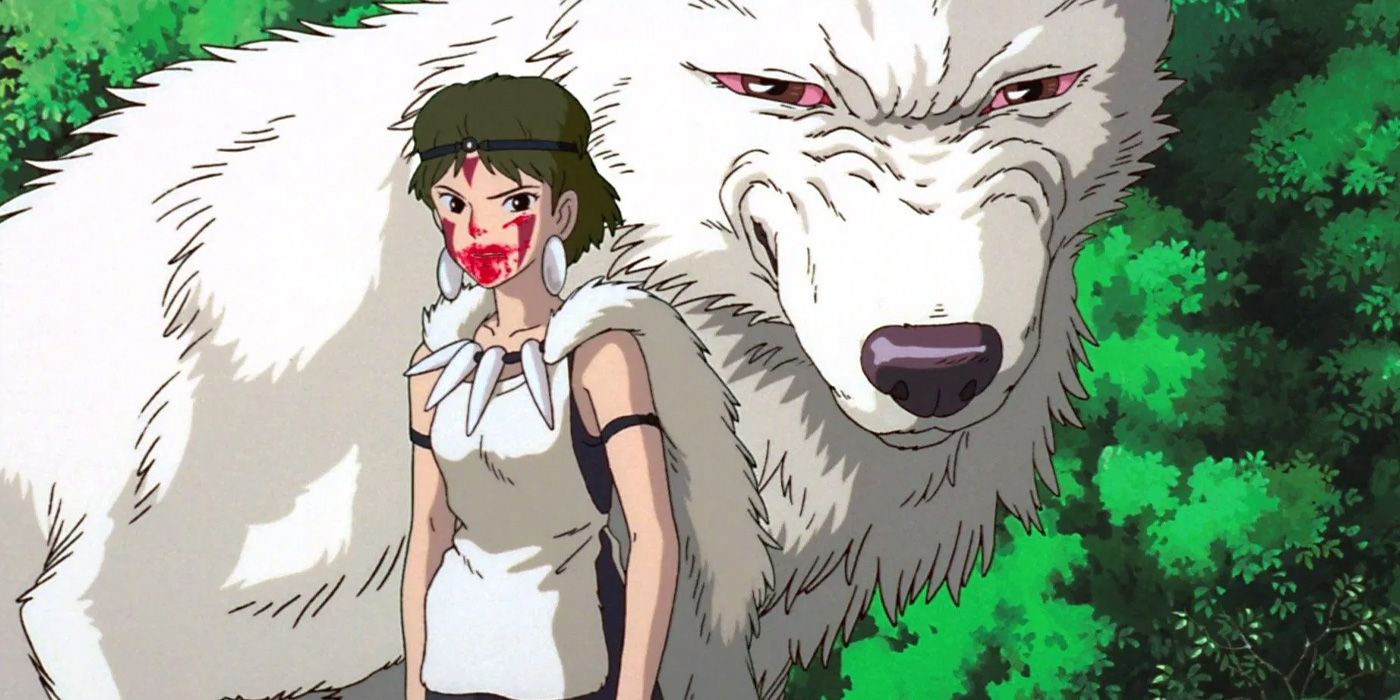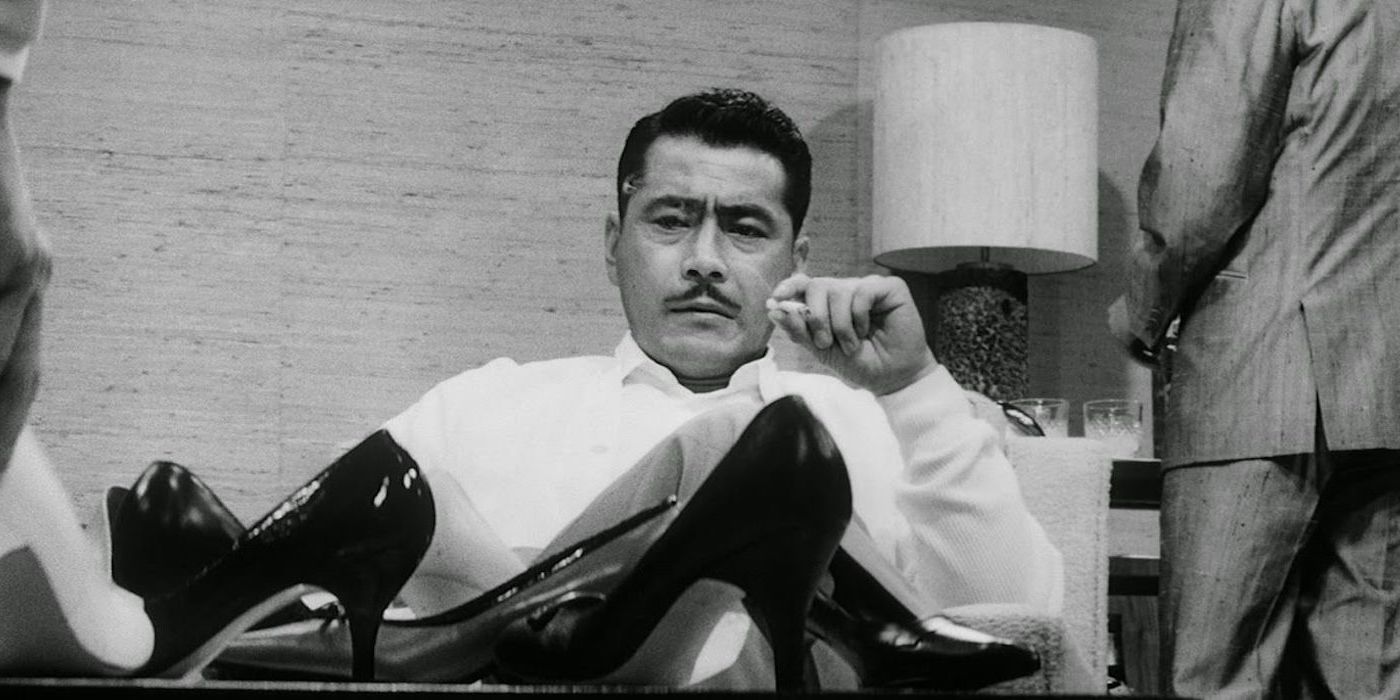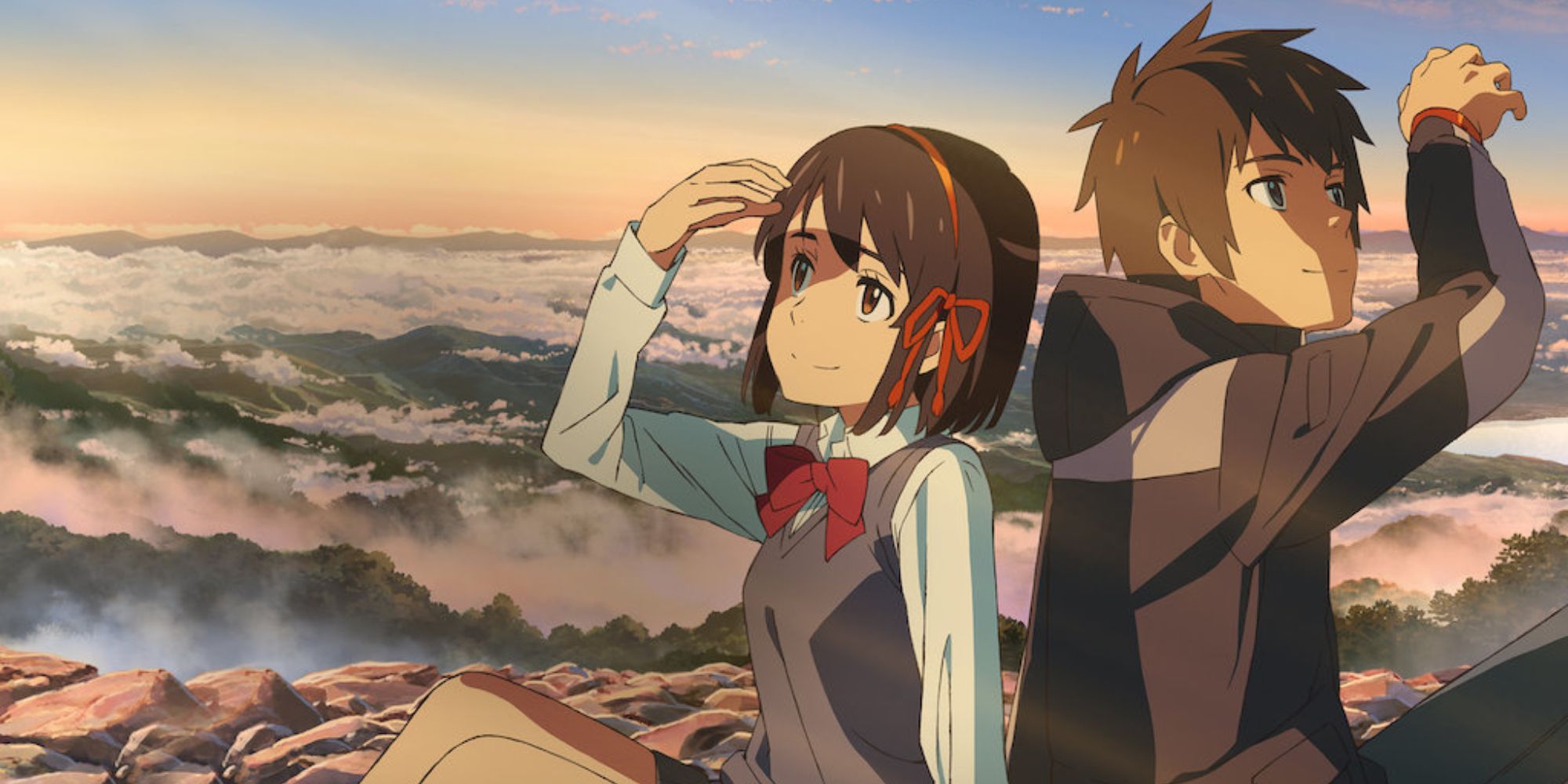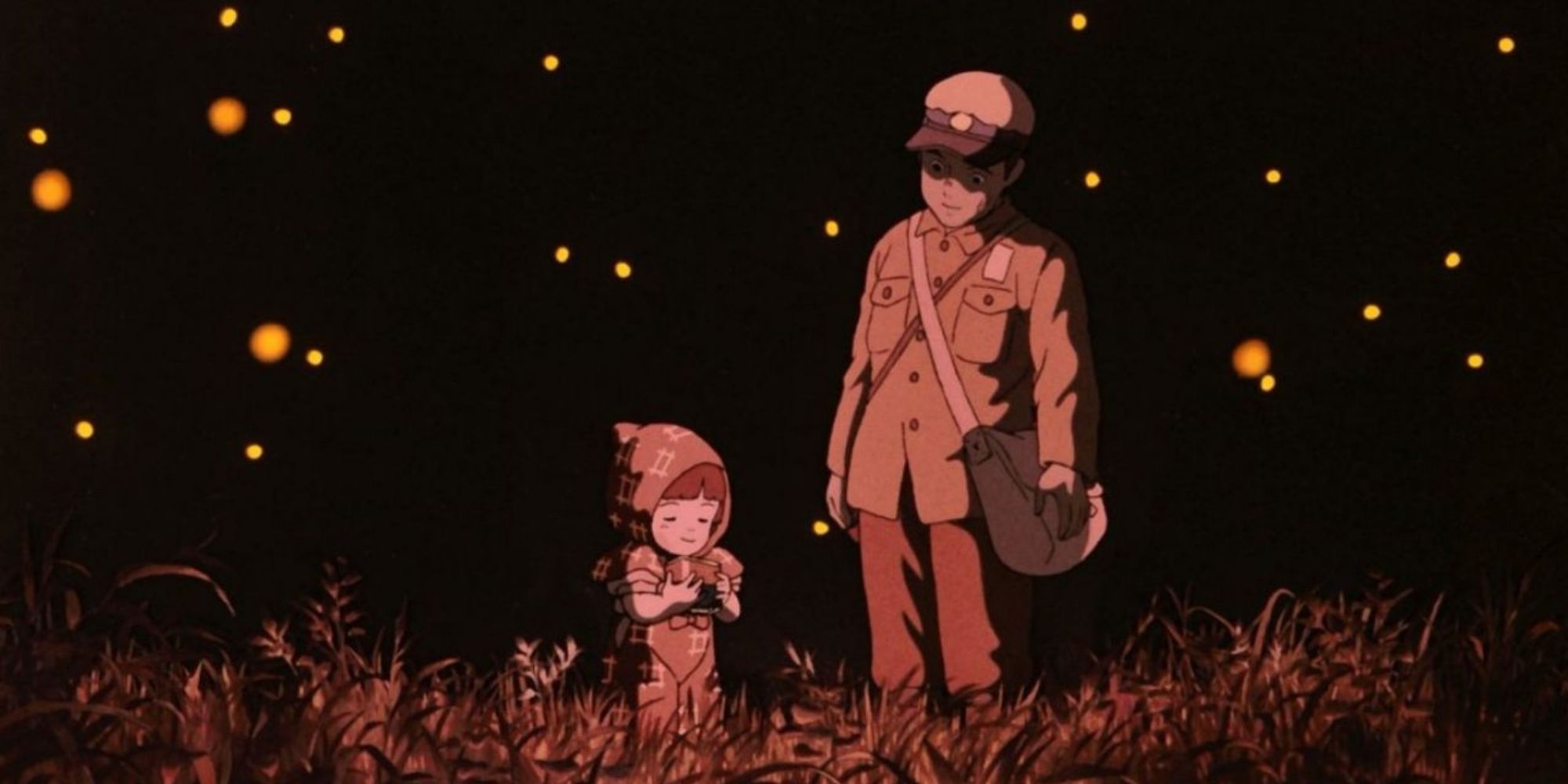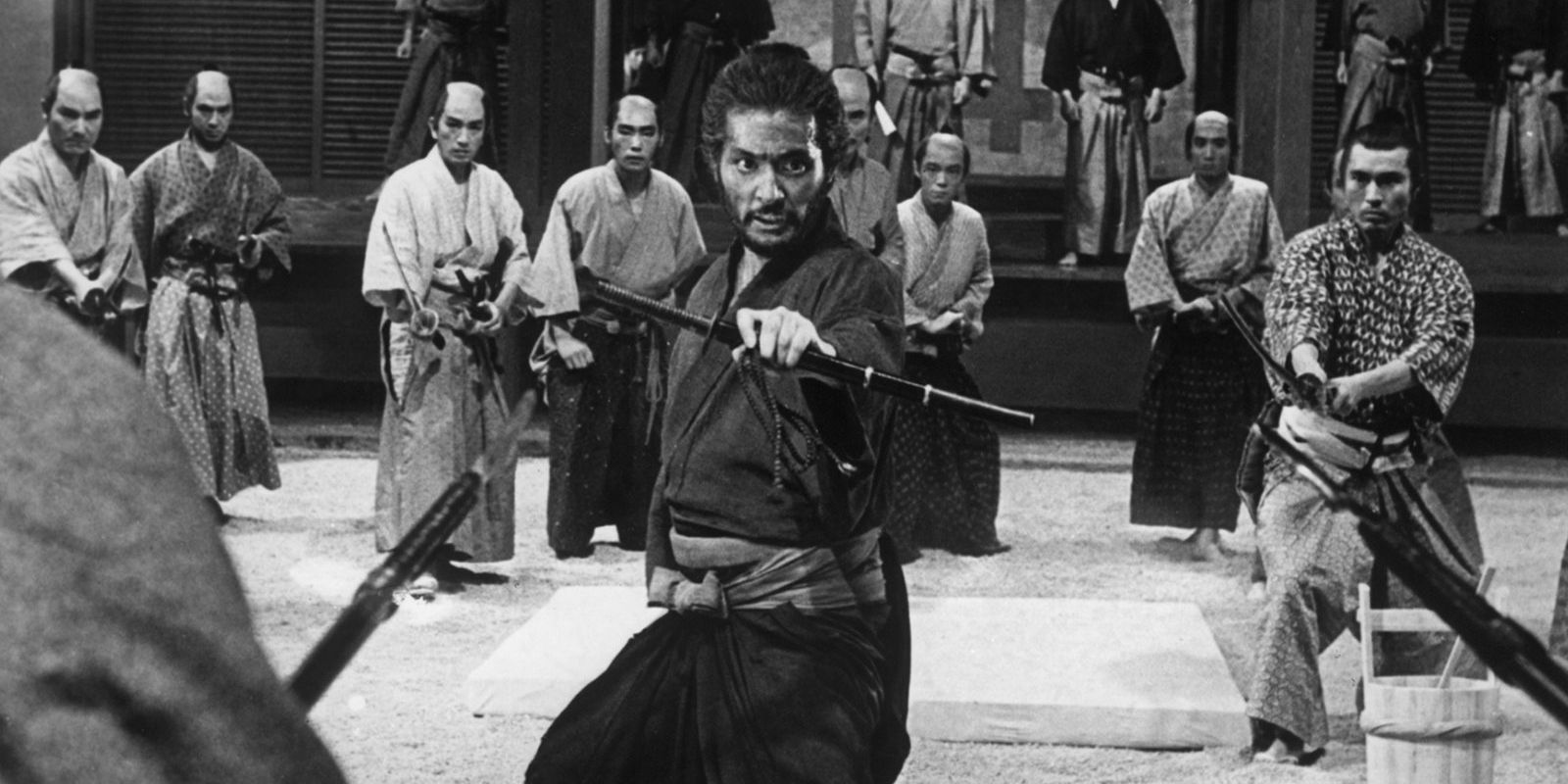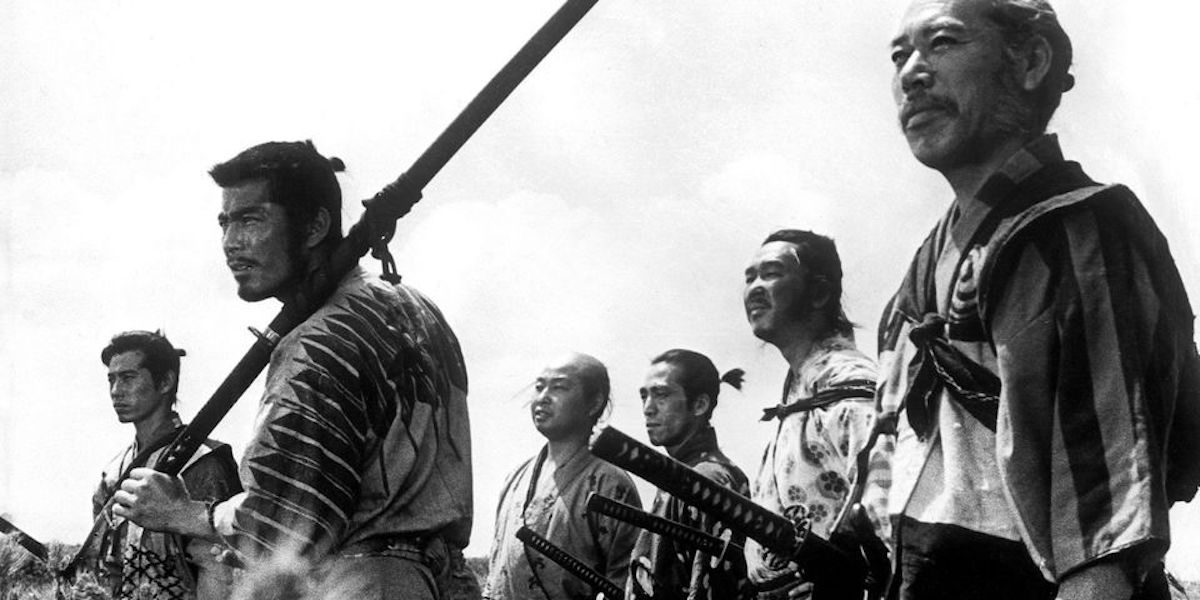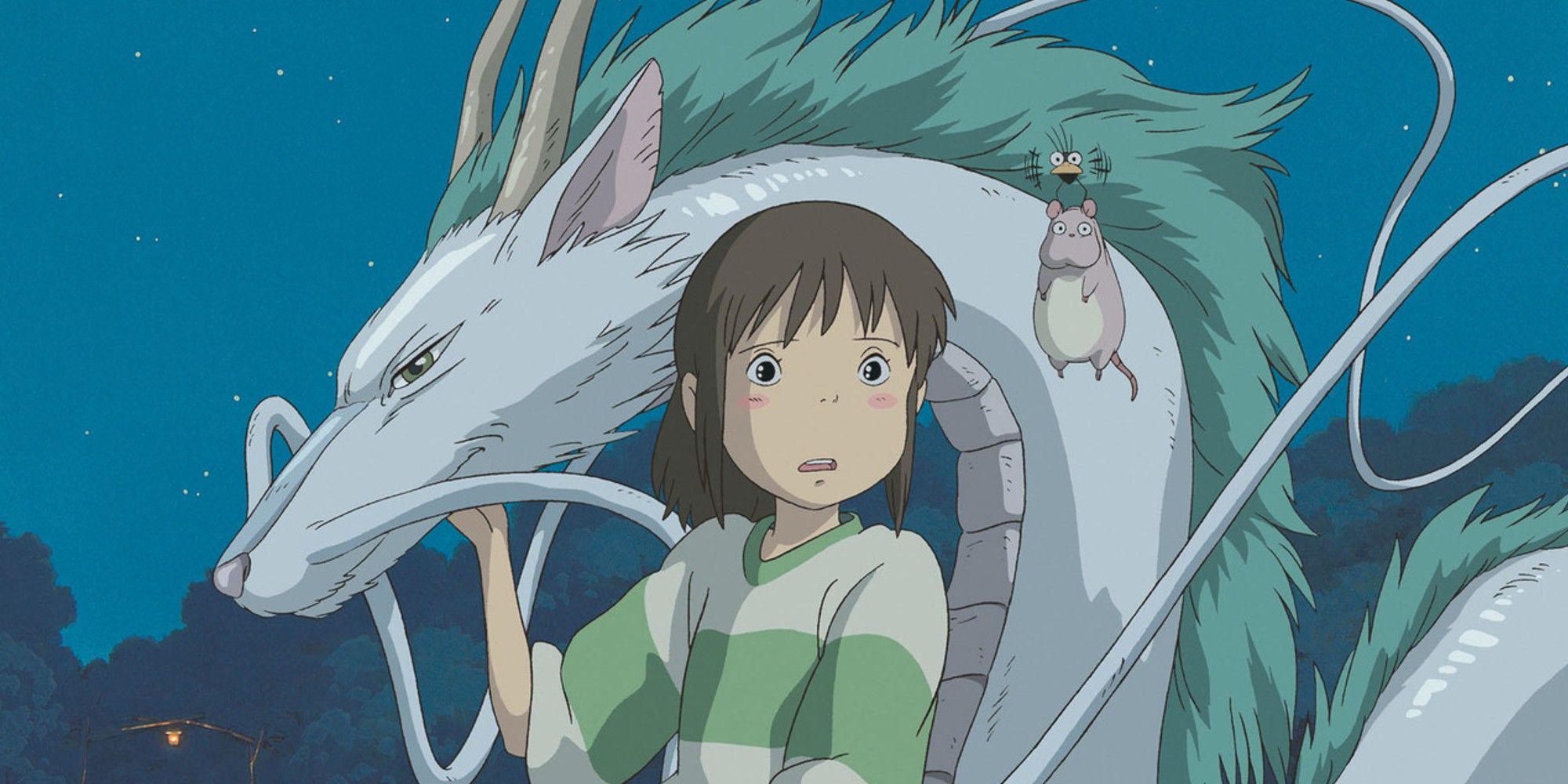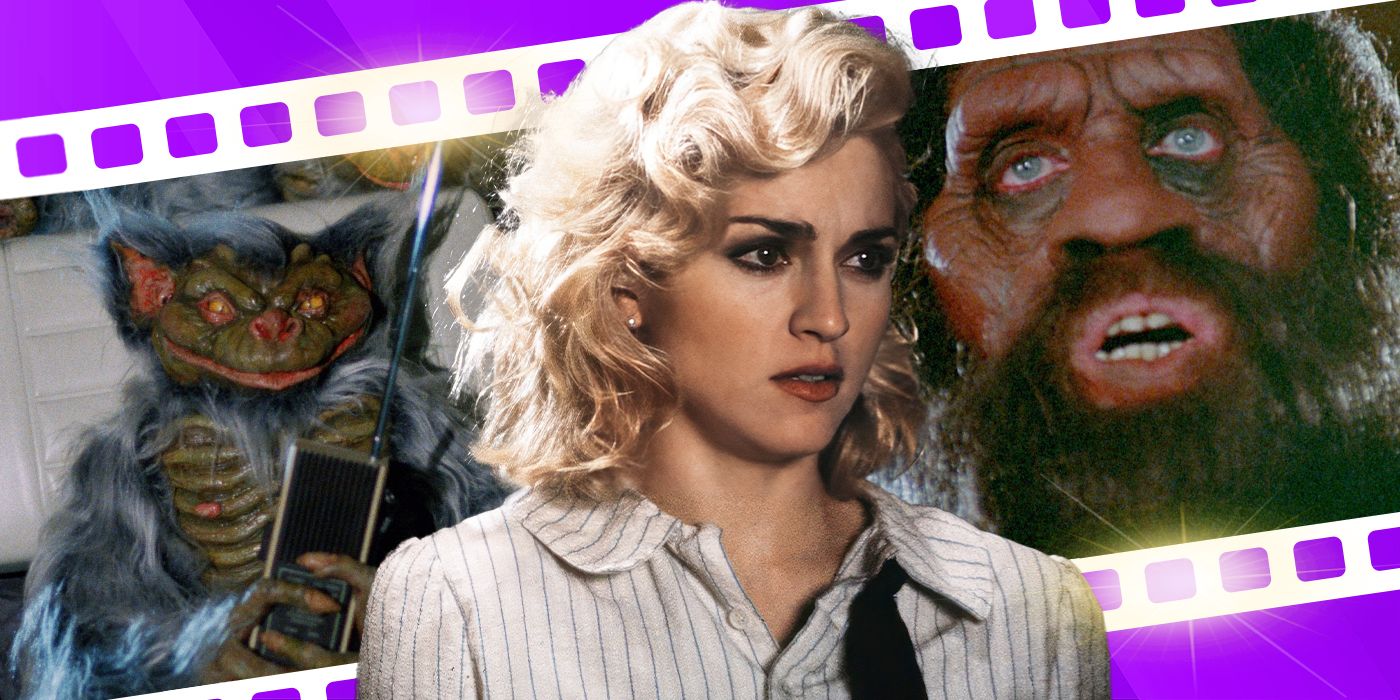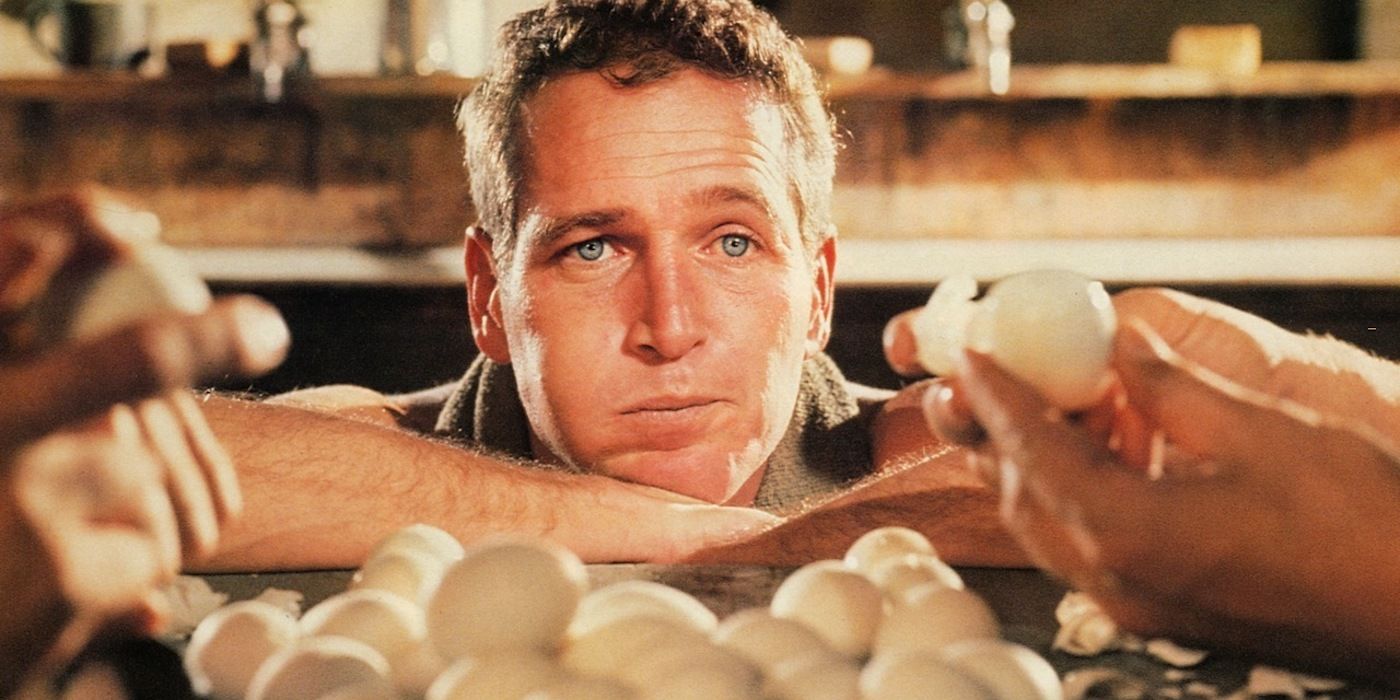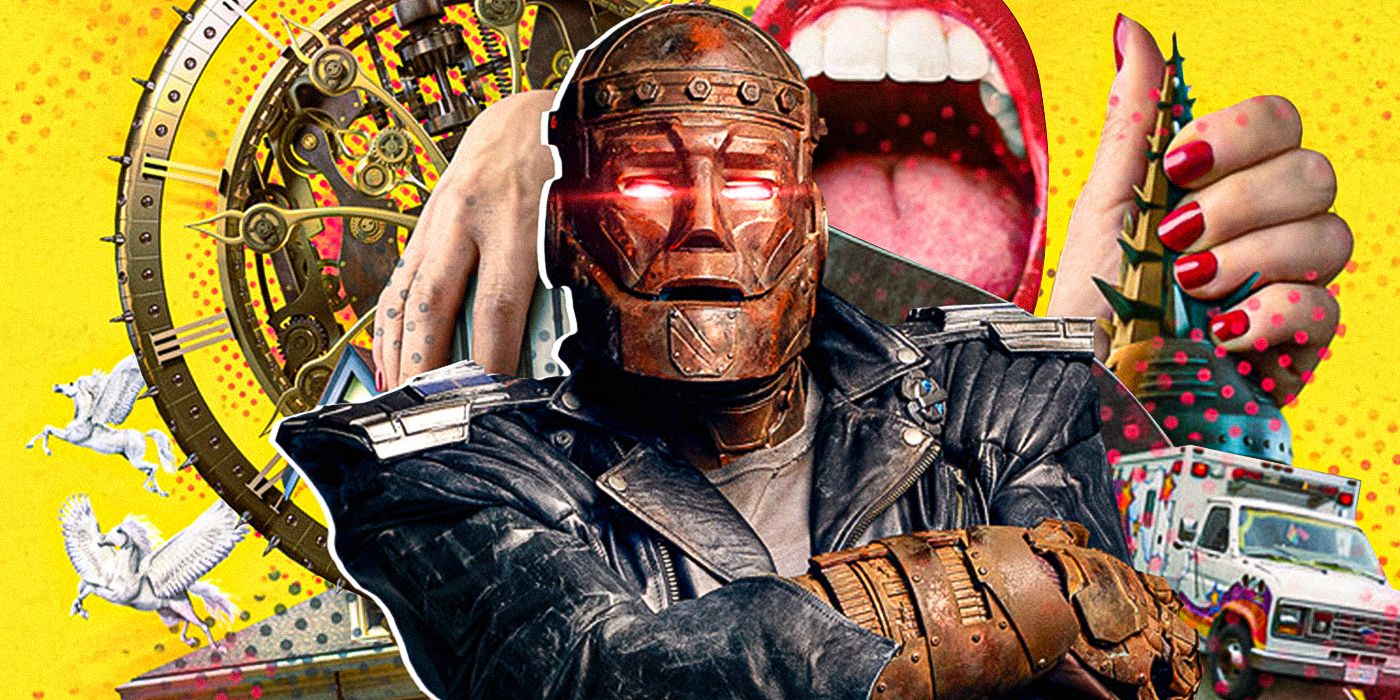When it comes to media, Japan is one of the greatest exporters of creative content. Whether it’s Japanese film, video games, anime, or novels, the country consistently delivers quality storytelling combined with its own unique sense of style.
In the realm of film, Japan has an abundance of great movies. Whether it’s animated films that commentate on the triumphs and failures of humanity, or sweeping epics set in feudal times, the country is host to a legion of talented filmmakers. While there are more fantastic Japanese movies than one list can cover, it’s easy to see the best Japanese movies according to IMDb. Japan’s contribution to the IMDb Top 250 should be considered essential viewing for fans, not just of Asian cinema, but of film in general.
20 ‘Throne of Blood’ (1957)
IMDb Score: 8.0/10
A feudal Japan set take on Macbeth, Throne of Blood follows Washizu (Toshiro Mifune), a samurai who assassinates his sovereign at the behest of his wife. As Washizu becomes the new lord, he struggles with his guilt and the growing paranoia that his treachery is soon to be discovered.
Another samurai classic by Akira Kurosawa, Throne of Blood is one of the best adaptations of William Shakespeare’s legendary tale and one of the top Japanese movies. The feudal Japan setting does wonders to elevate the themes of the story, with honor and loyalty to their liege often the most important traits of a samurai.
Throne of Blood
- Release Date
- January 15, 1957
- Director
- Akira Kurosawa
- Cast
- Toshiro Mifune , Isuzu Yamada , Takashi Shimura
- Runtime
- 110
19 ‘Neon Genesis Evangelion: The End of Evangelion’ (1997)
IMDb Score: 8.1/10
Pitched as an alternate ending to the original popular anime series, Neon Genesis Evangelion: The End of Evangelion follows Shinji, Rei, and Asuka as they continue to fight their enemies using mechas named Evangelions.
Neon Genesis Evangelion is one of the most acclaimed anime series of all time, with its theatrical counterpart earning a place on the list of Japanese best movies. The best of the Neon Genesis movies, The End of Evangelion serves as a fitting end to the original series as it showcases the power of animation to tell dark, adult stories.
Neon Genesis Evangelion: The End of Evangelion
- Release Date
- July 19, 1997
- Director
- Kazuya Tsurumaki , Hideaki Anno
- Cast
- Megumi Ogata , Megumi Hayashibara , Kotono Mitsuishi
- Runtime
- 1 hr 27 min
Watch on Netflix
18 ‘A Silent Voice’ (2016)
IMDb Score: 8.1/10
Adapted from the manga of the same name, A Silent Voice follows Shoya Ishida, a former grade school bully who sets out to make amends with those he hurt. Top of his list is Shoko Nishimiya, a shy girl who was born deaf and who moved schools as a result of Shoya’s bullying. As the pair reconnect, they learn more about each other and themselves.
Far removed from the fantasy and action that tends to dominate anime, A Silent Voice is a sweet story about two social outcasts finding a genuine connection with each other. While it may not be the best Japanese movie in everyone’s eyes due to its low-key nature, it is still a lovely human story worth spending time with.
A Silent Voice
- Release Date
- September 17, 2016
- Director
- Naoko Yamada
- Cast
- Miyu Irino , Saori Hayami , Aoi Yuki
- Runtime
- 2 hr 10 min
Rent on Apple TV
17 ‘Tokyo Story’ (1953)
IMDb Score: 8.1/10
When an elderly couple decides to move from their small village to the bustling city of Tokyo, they plan to spend time with their adult children. But when they discover their kids are too busy with their own lives to entertain them, they instead find themselves being kept company by Noriko, the widow of their son who passed away.
An essential film by Yasujirō Ozu, Tokyo Story is a movie that could have easily been built on melodrama, but it is a subdued movie, operating quietly as it explores the dynamics of this family unit. It also gives a voice to elderly people, those who have been dismissed by their grown children as being merely nothing more than a nuisance to be ignored. The end result is the ultimate movie about a multigenerational family.
Tokyo Story
- Release Date
- March 13, 1972
- Director
- Yasujirô Ozu
- Cast
- Chishû Ryû , Chieko Higashiyama , Sô Yamamura , Setsuko Hara
- Runtime
- 136 minutes
- Main Genre
- Drama
Watch on Criterion
16 ‘My Neighbour Totoro’ (1988)
IMDb Score: 8.1/10
After their mother is hospitalized, young sisters Mei and Satsuki move to a new home in the countryside with their father. As the siblings spend their days playing in the nearby woods, they soon befriend Totoro, a giant friendly creature who is a forest spirit. Together they go on joyous adventures.
One of the best Studio Ghibli movies, My Neighbour Totoro is pure joy. It is a Japan movie that is full of minimal conflict and maximum cuteness, creating the ultimate comfort movie. Its impact can be seen in how much its characters have appeared in popular culture, with Totoro plushies available for purchase all over the world.
My Neighbor Totoro
- Release Date
- April 16, 1988
- Cast
- Noriko Hidaka , Chika Sakamoto , Shigesato Itoi , Sumi Shimamoto , Tanie Kitabayashi , Hitoshi Takagi
- Runtime
- 86 Minutes
15 ‘Ugetsu’ (1953)
IMDb Score: 8.2/10
One of the directors who came out of the Japanese golden age of cinema is Kenji Mizoguchi, best known for his mis-ec-scène and decadent long takes. Ugetsu is one of his films that received international recognition as it created an impalpable atmosphere that invites viewers to empathize with the character’s struggles.
Ugetsu follows the story of two couples who are struggling and whose lives are being torn apart by the civil war. While the men strive to lift themselves from indigence, they soon find themselves intertwined with supernatural entities, leading to catastrophic results. The movie holds up a mirror to human desires and ambition in times of desperation, while also showing the harsh realities of war. There’s no doubt of Ugetsu’s lasting effect on cinema as it has obviously influenced modern Japanese movies, as well as renowned filmmakers like Akira Kurosawa and Martin Scorsese.
Watch on Max
14 ‘Late Spring’ (1949)
IMDB Score: 8.2/10
Directed by Yasujirō Oju, Late Spring is a drama movie that explores the relationship between an adult woman and her father. In the movie, Noriko (Setsuko Hara) feels the societal pressure to get married. However, she’s reluctant to leave her father due to their deep bond and her incredible desire to serve her family. It’s a poignant movie that highlights the complex realities of duty and sacrifice.
Ozu’s direction truly shines in Late Spring, as his storytelling allows viewers to fully connect with Noriko’s internal struggles. Static camera shots are partnered with pillow shots of mundane objects in Ugetsu in order to add a meditative atmosphere to the film. Despite the movie’s peaceful and minimalist visuals, there’s a lot to take away from its message of personal sacrifice and filial love.
Watch on Max
13 ‘Demon Slayer: Kimetsu no Yaiba – The Movie: Mugen Train’ (2020)
IMDb Score: 8.2/10
The sequel to the first season of the highly popular anime, Demon Slayer: Mugen Train moves the action to the big screen. As Tanjiro Kamado and his friends continue their journey to slay demons, they board the Mugen Train as it charges straight ahead into a fateful battle.
A juggernaut at the box office, Mugen Train earned a place as one of the most famous Japanese movies of all time as it topped the worldwide box office in 2020. This honor was more than earned as the film is a masterful combination of thrilling action, gorgeous animation, and a captivating plot that pulls at the heartstrings.
Demon Slayer: Mugen Train
- Release Date
- April 23, 2021
- Director
- Haruo Sotozaki
- Cast
- Natsuki Hanae , Akari Kitō , Yoshitsugu Matsuoka , Hiro Shimono
- Runtime
- 117 minutes
Watch on Crunchyroll
12 ‘Yojimbo’ (1961)
IMDb Score: 8.2/10
When a nameless ronin arrives in a village consumed by a conflict between two powerful men, he finds himself in the middle of their turf war. As the ronin convinces both men to hire him as their personal bodyguard, he begins to play them against each other and causes a full-scale war to break out in the town.
One of the most influential samurai movies of all time, Yojimbo also proved to be an influence on the Western genre. The famous spaghetti Western A Fistful of Dollars is a remake of Yojimbo, and retains the classic mix of action and comedy that makes Yojimbo such a revered classic.
Yojimbo
- Release Date
- April 25, 1961
- Director
- Akira Kurosawa
- Cast
- Toshiro Mifune , Tatsuya Nakadai , Yôko Tsukasa , Isuzu Yamada , Daisuke Katô , Seizaburô Kawazu
- Runtime
- 110 minutes
11 ‘Rashomon’ (1950)
IMDb Score: 8.2/10
After a samurai is murdered and his wife is assaulted, four witnesses are summoned to recall what they saw. With each witness providing a different series of events, finding the truth proves to be complicated. As the witnesses all embellish certain parts of the story to paint themselves in a favorable light, they each reveal how they wish to be seen.
A unique samurai movie, Rashomon focuses less on sword fighting and more on character study. Every character featured in the twisted narrative is performed to perfection, and the captivating narrative structure draws audiences in straight away as they seek to learn the truth of the incident.
Rashomon
- Release Date
- August 25, 1950
- Director
- Akira Kurosawa
- Cast
- Toshiro Mifune , Takashi Shimura
- Runtime
- 88
- Main Genre
- Drama
10 ‘Ran’ (1985)
IMDb Score: 8.2/10
Released towards the end of his career, Ran holds a place as one of Akira Kurosawa’s finest films, as well as standing among the greatest movies ever made. Influenced by Shakespeare’s King Lear, the story follows an aging warlord who attempts to pass his kingdom to his three sons.
The final epic of his career, Ran is a culmination of all the themes and techniques Kurosawa expressed throughout his filmography. Its sweeping landscapes, elaborate large-scale sequences, and profound story are all recognizable trademarks. The film earned him his only nomination for the Academy Award for Best Director.
Ran (1985)
- Release Date
- May 31, 1985
- Director
- Akira Kurosawa
- Cast
- Tatsuya Nakadai , Akira Terao , Jinpachi Nezu , Daisuke Ryu , Mieko Harada , Shinnosuke Ikehata , Hisashi Igawa , Yoshiko Miyazaki
- Runtime
- 162 Minutes
Watch on Amazon Prime
9 ‘Howl’s Moving Castle’ (2004)
IMDb Score: 8.2/10
Another classic from Studio Ghibli and Hayao Miyazaki, Howl’s Moving Castle is set in a fictional kingdom where magic exists. When a young girl is transformed into an old woman by a witch, she finds herself befriending a wizard named Howl and travels with him aboard his titular moving castle in an effort to break the spell.
Miyazaki has claimed that Howl’s is his favorite creation, and he made it as a way to express his disdain for America’s invasion of Iraq. Howl’s Moving Castle also touches on feminism and ageism, offering thoughtful messages beyond its stunning visuals.
Howl’s Moving Castle
- Release Date
- November 19, 2004
- Cast
- Chieko Baisho , Takuya Kimura , Akihiro Miwa , Tatsuya Gashûin , Ryûnosuke Kamiki , Mitsunori Isaki
- Runtime
- 119 minutes
8 ‘Ikiru’ (1952)
IMDb Score: 8.3/10
Kurosawa’s 13th film, Ikiru provides one of his most understated stories. When an aged man nearing retirement discovers he is terminally ill, he attempts to make the most of his final days. Despite a strained relationship with his son, he vows to make a mark on the world through the happiness he can leave with others.
Commentating on the purpose of life and the acceptance of death, Ikiru is a must-see existentialist movie that explores themes that everyone will find relatable. The film is also Kurosawa’s examination of what he considered to be a period where Japanese family life was falling apart.
Ikiru
- Release Date
- March 25, 1956
- Director
- Akira Kurosawa
- Runtime
- 143 Minutes
- Main Genre
- Drama
Watch on Max
7 ‘Princess Mononoke’ (1997)
IMDb Score: 8.3/10
The fourth creature-filled film from Studio Ghibli, Princess Mononoke helped establish both of their names internationally. The film follows a young prince who finds himself in a war between the spirits of a forest and the humans harvesting it for resources.
A portrayal of humanity’s negative effect on the environment, Princess Mononoke refuses to paint a clear villain. Both the gods of the forest and the humans have understandable reasons for their side of the conflict, and Princess Mononoke presents the ideal solution as a middle ground between mankind and nature.
Princess Mononoke (1997)
- Release Date
- July 12, 1997
- Cast
- Yôji Matsuda , Yuriko Ishida , Yûko Tanaka , Kaoru Kobayashi , Masahiko Nishimura , Tsunehiko Kamijô
- Runtime
- 134 minutes
6 ‘High and Low’ (1963)
IMDb Score: 8.4/10
Wealthy Gondo (Toshiro Mifune) is a company executive, who is secretly attempting to stage a company buyout. However, when he receives a call claiming his son has been kidnapped, and he needs to pay a ransom to see him again, Gondo finds himself in a precarious situation.
What begins as a tense drama soon turns into a police procedural, as detectives become involved in the search for the perpetrator. High and Low mostly serves as an examination of Gondo’s character, as he is forced to balance his desire to achieve success with that of being a good person.
High and Low
- Release Date
- November 26, 1963
- Director
- Akira Kurosawa
- Cast
- Toshiro Mifune , Tatsuya Nakadai , Kyôko Kagawa , Tatsuya Mihashi
- Runtime
- 143 minutes
Watch on Max
5 ‘Your Name’ (2016)
IMDb Score: 8.4/10
Worthy of a spot among the top 10 Japanese movies, Your Name is a romantic body swap anime film that tells the story of two teenagers living in modern Japan. The pair begin to swap bodies and are forced to live each other’s lives for periods of time. In an effort to solve their dilemma, the teens decide to meet for the first time.
The film was a major success at release and was praised by critics, becoming one of the most popular Japan movies overseas. Your Name is beautifully animated, and the story does a fine job of portraying the earnestness of young love and the awkwardness of trying to navigate your teenage years.
Your Name
- Release Date
- August 26, 2016
- Director
- Makoto Shinkai
- Cast
- Ryûnosuke Kamiki , Mone Kamishiraishi
- Runtime
- 107
4 ‘Grave of the Fireflies’ (1988)
IMDb Score: 8.5/10
Easily the most depressing film on this list, Grave of the Fireflies tells the story of a teenage boy and his younger sister. Set during the final months of World War II, the film follows the sibling’s desperate attempt to survive as the war finds its way to their home.
Animated by Studio Ghibli, the film is as beautiful as it is haunting. Grave of the Fireflies does not shy away from the harsh realities of war and its impact on civilians. Grave of the Fireflies is one of the greatest war films of all time and a milestone in Japanese movie history.
Grave of the Fireflies
- Release Date
- July 26, 1989
- Director
- Isao Takahata
- Cast
- Tsutomu Tatsumi , Ayano Shiraishi , Akemi Yamaguchi
- Runtime
- 89 minutes
Buy on Amazon
3 ‘Harakiri’ (1962)
IMDb Score: 8.6/10
One of the best samurai films of all time, if not the best, Harakiri begins with an elder samurai arriving at the estate of a feudal lord. The samurai asks the lord if he may commit seppuku within his manor, causing the samurai to explain the events that led him here.
An anti-samurai film, Harakiri criticizes the failings the samurai code held for its followers. When wars had been won and peace enveloped the land, samurai often found themselves without purpose, choosing to take their own lives by performing “harakiri,” resulting in a tragic waste of life.
Harakiri (1962)
- Release Date
- August 4, 1964
- Director
- Masaki Kobayashi
- Cast
- Tatsuya Nakadai , Akira Ishihama , Shima Iwashita , Tetsurô Tanba , Masao Mishima , Ichirô Nakatani , Kei Satō , Yoshio Inaba
- Runtime
- 133 Minutes
Watch on Criterion
2 ‘Seven Samurai’ (1954)
IMDb Score: 8.6/10
Seen by many as Kurosawa’s magnum opus, Seven Samurai tells the tale of seven samurai who band together to protect a village from the bandits who threaten it. Each of the samurai comes from a different background, but they all find meaning in protecting those who cannot protect themselves.
Often cited among the most influential and best Japanese movies of all time, Seven Samurai was adapted in America and released as The Magnificent Seven, placing it in a Western setting. The movie’s storyline and concept of “getting a team together” can be felt in media everywhere, with the film’s influence being felt in The Dirty Dozen, Saving Private Ryan, and even Avengers: Endgame.
Seven Samurai
- Release Date
- April 26, 1954
- Director
- Akira Kurosawa
- Cast
- Toshiro Mifune , Takashi Shimura
- Runtime
- 207 minutes
1 ‘Spirited Away’ (2001)
IMDb Score: 8.6/10
Animation house Studio Ghibli and director Hayao Miyazaki possess a filmography that rivals anyone, but Spirited Away stands as their masterpiece (and continues to be the best Japanese movie). When ten-year-old Chihiro witnesses her parents being turned into pigs by a witch, she must work in the witch’s bathhouse to earn her parents’ freedom.
What follows is an amazing display of animation and imagination as Chihiro finds herself in a wondrous world parallel to our own, full of quirky characters and bizarre creations. Spirited Away won the Academy Award for Best Animated Feature, making it the first, and only, non-English language film to do so.
Spirited Away
- Release Date
- July 20, 2001
- Cast
- Rumi Hîragi , Miyu Irino , Mari Natsuki , Takashi Naitô , Yasuko Sawaguchi , Tatsuya Gashûin
- Runtime
- 125 minutes
Watch on Max

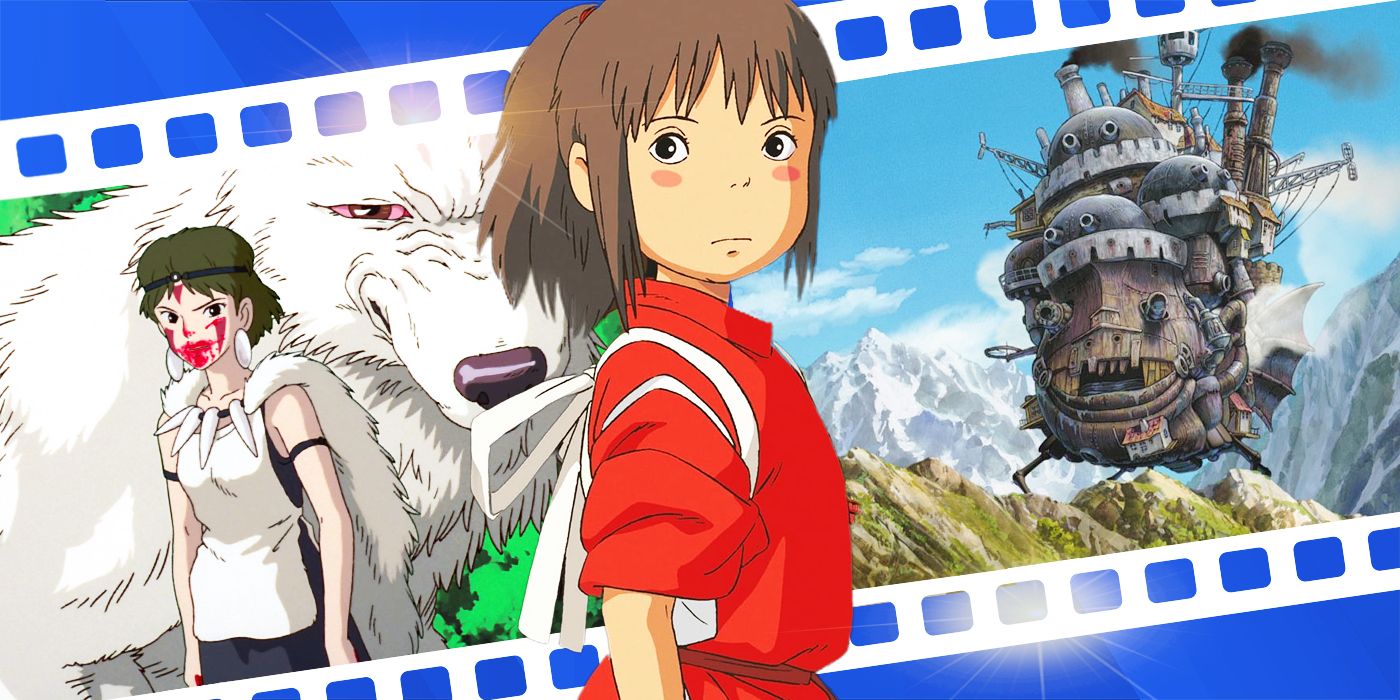
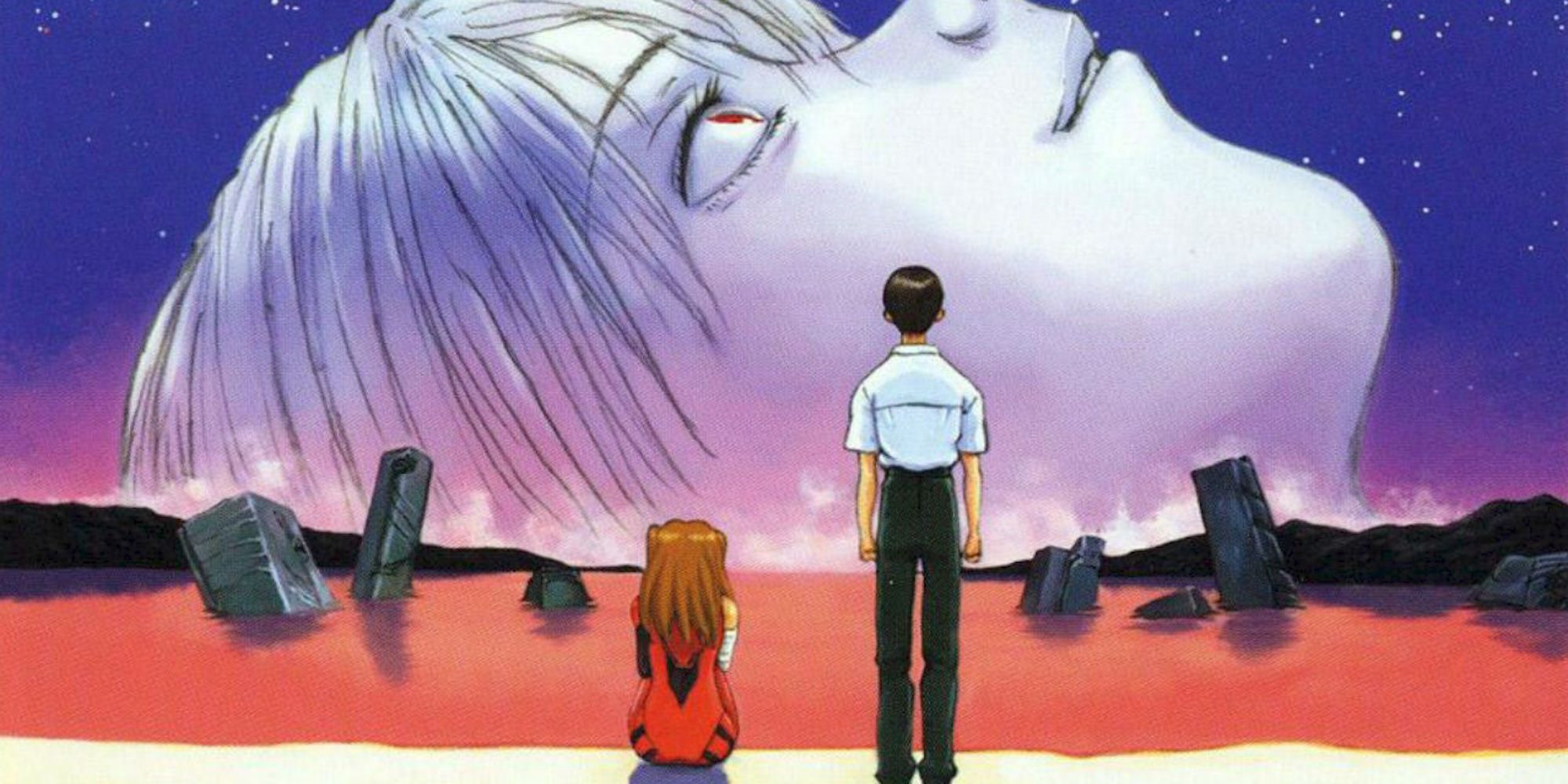
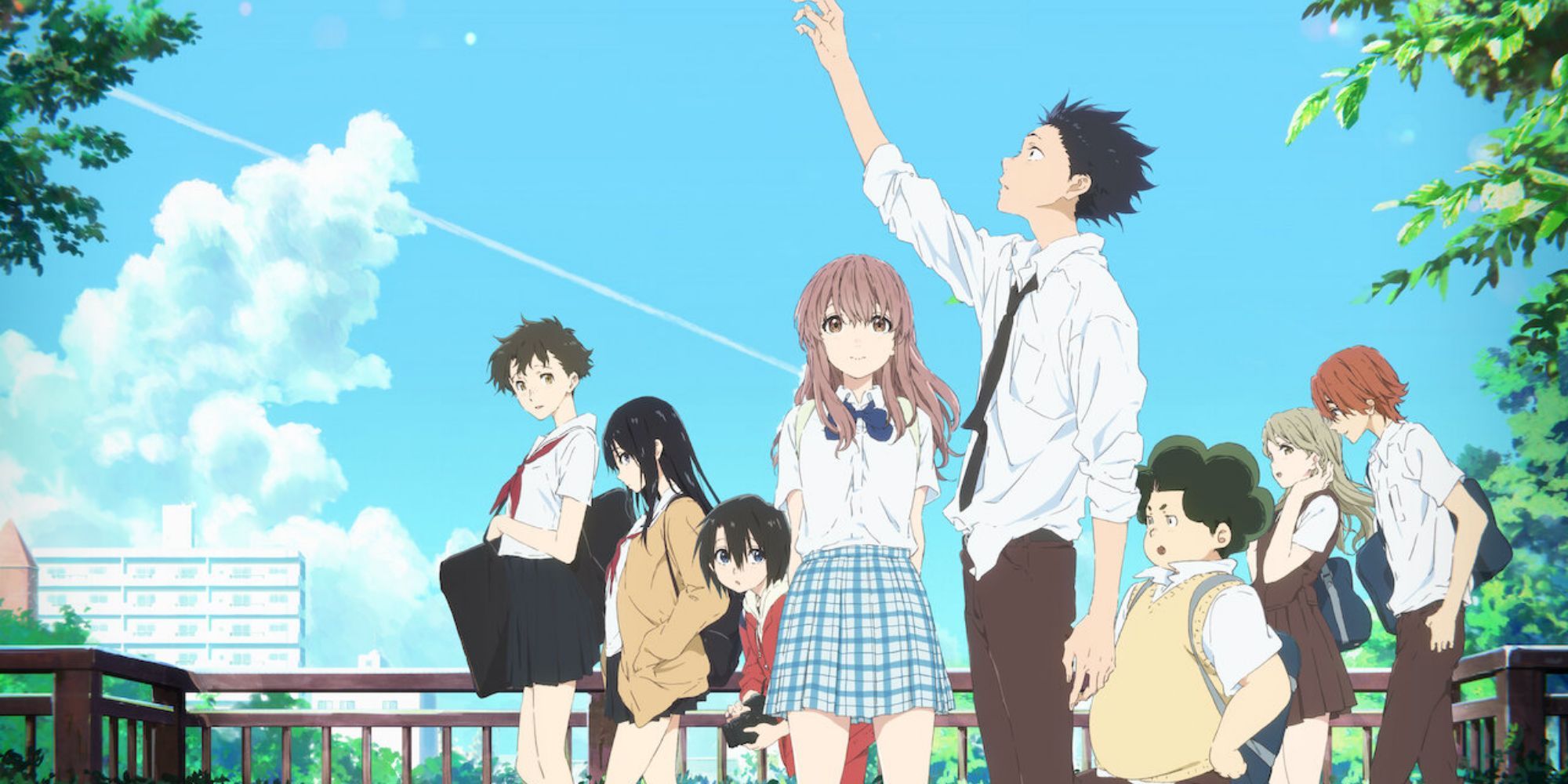
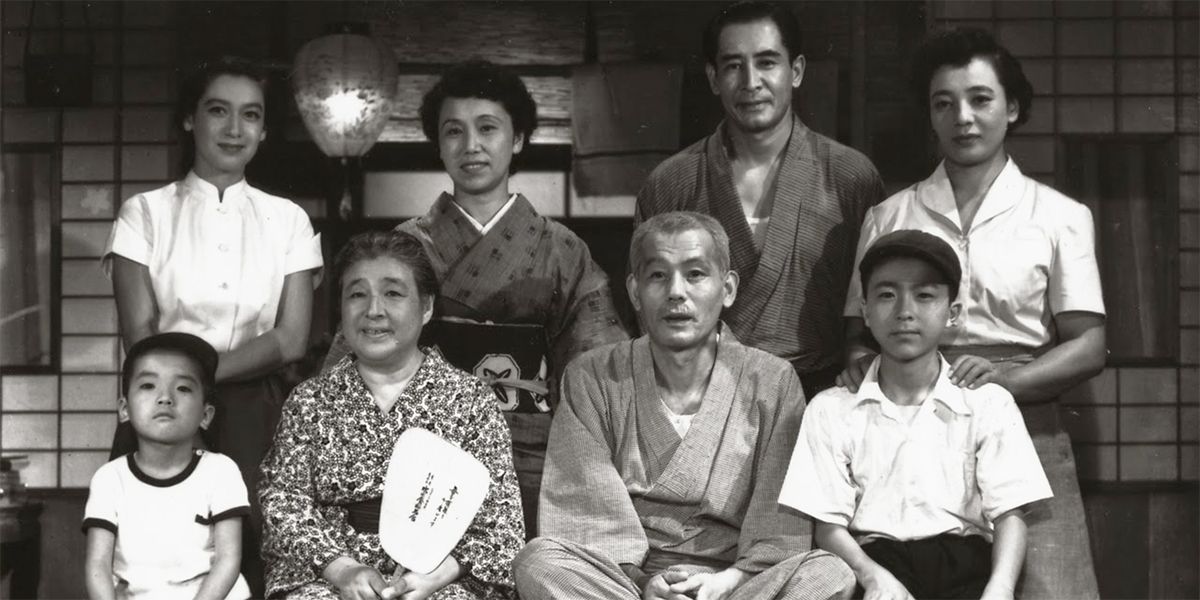
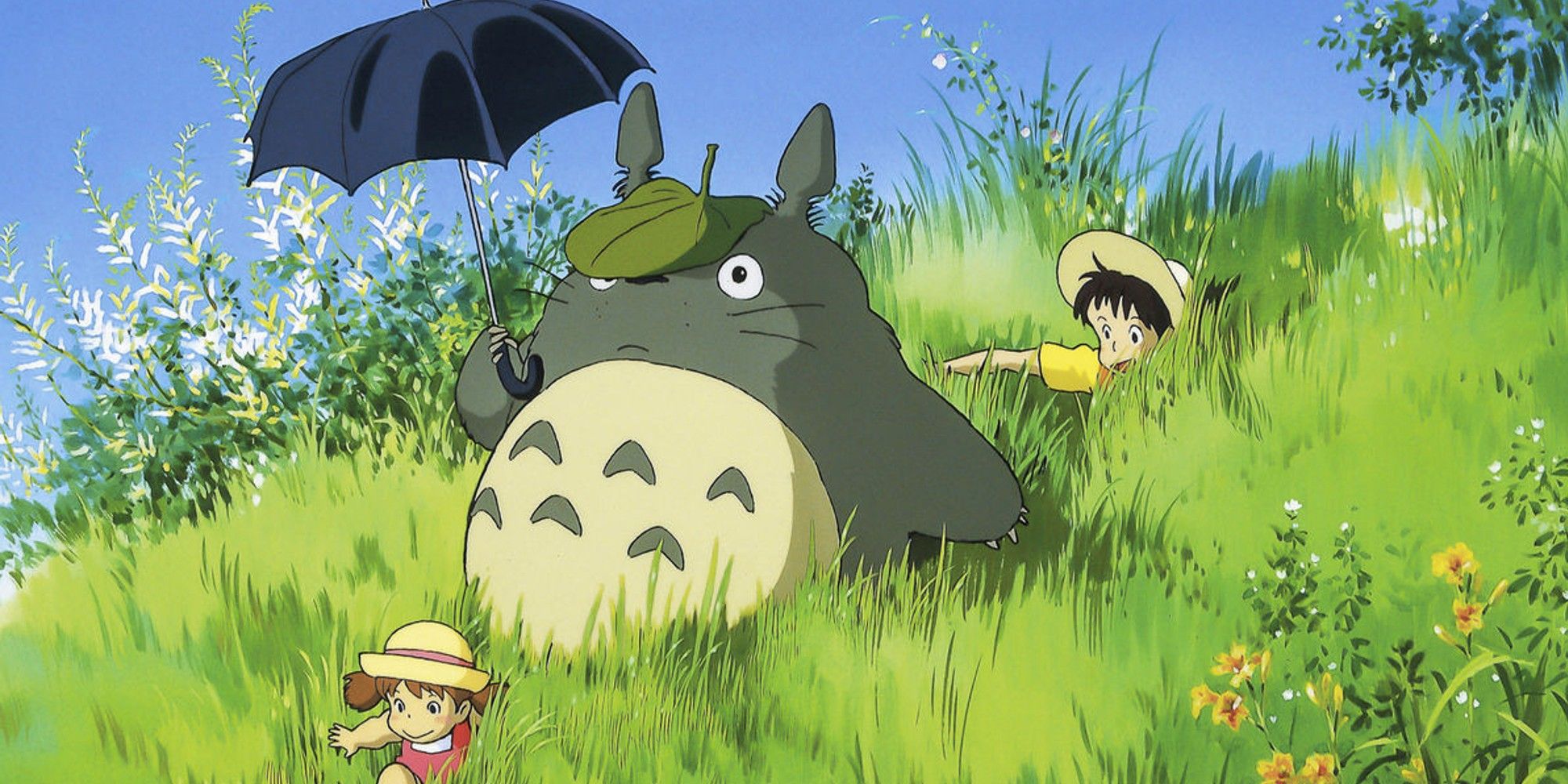
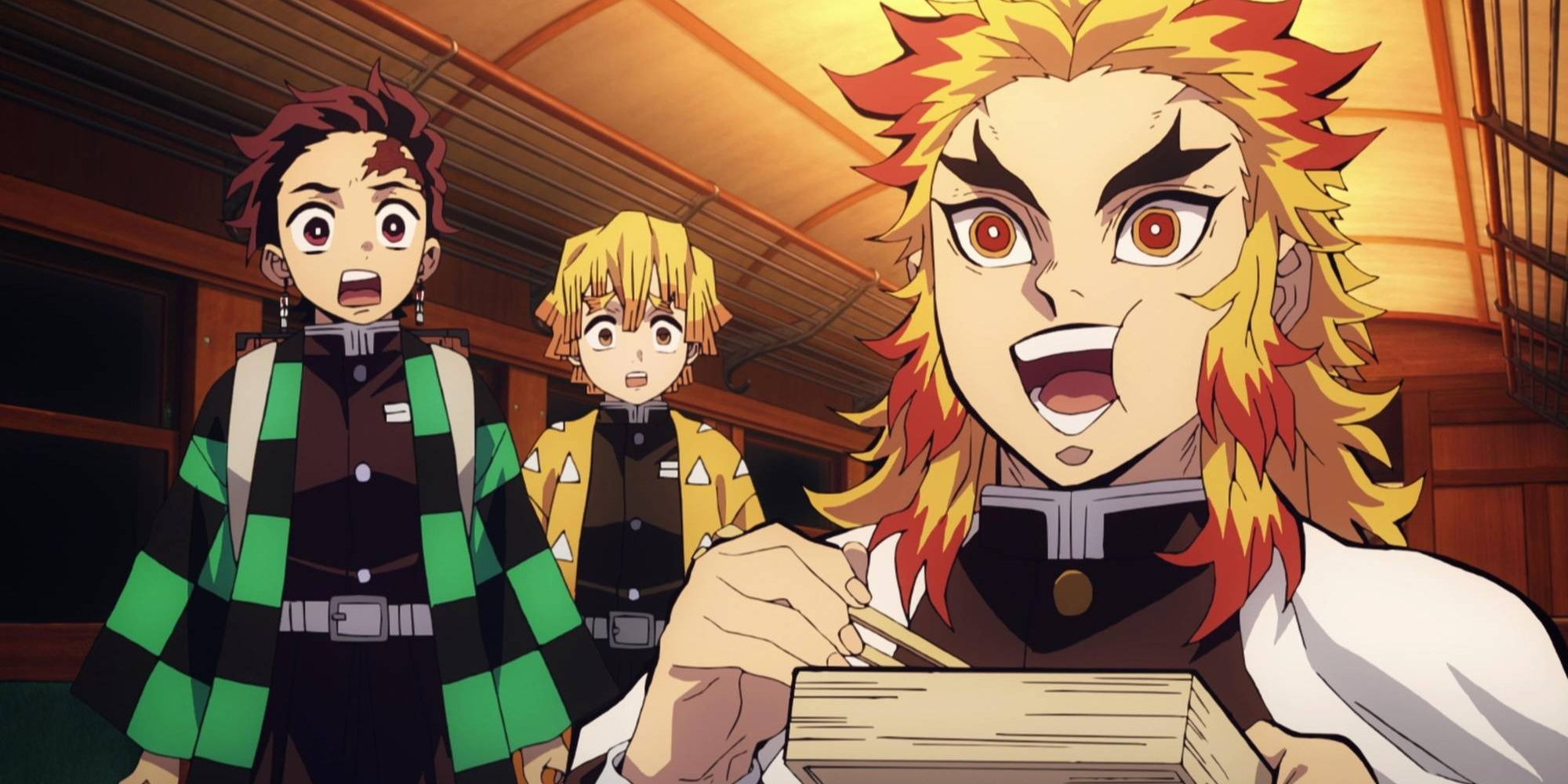
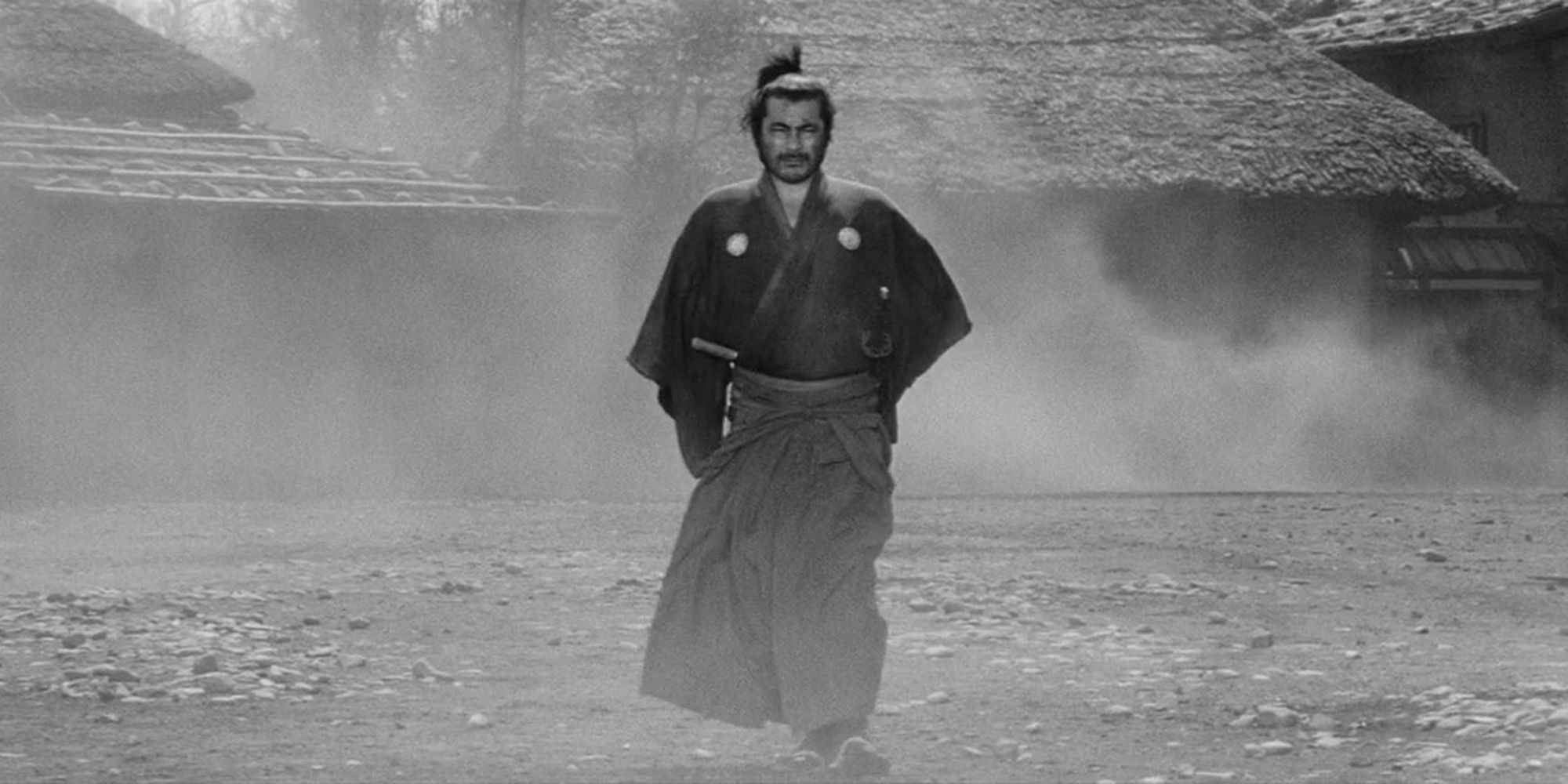
.jpg)

